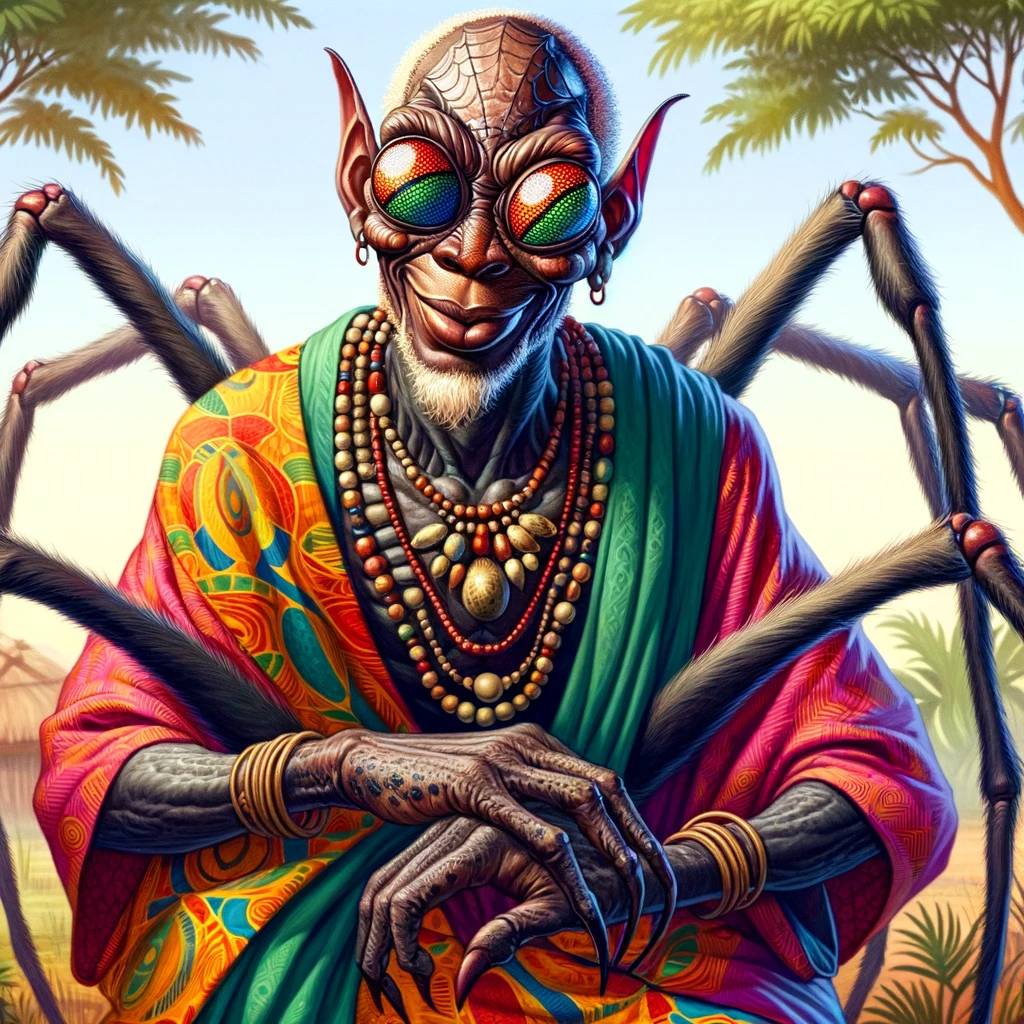
Anansi, a central figure in African folklore, particularly among the Akan people of Ghana, is a fascinating and multifaceted character whose tales have spread far beyond their original cultural context. Known for his cunning, wit, and trickster nature, Anansi often appears as a spider and sometimes as a spider with human characteristics or as a man. His stories are not just entertaining; they are also rich in moral and philosophical meaning, reflecting the values and teachings of the societies that created them.
Origins and Significance
Anansi’s origins can be traced back to the Akan people of Ghana. His name, Anansi, means “spider” in the Akan language. He is often seen as a symbol of resistance and survival, embodying the spirit of the Akan people who have historically valued intelligence, wisdom, and the ability to navigate complex social situations. Anansi’s tales were traditionally used as a means of oral storytelling, passing down wisdom and morals from generation to generation.
Character Traits and Themes
Anansi is predominantly portrayed as a trickster, a common archetype in mythologies worldwide. He often uses his intelligence and cunning to outsmart his enemies or to turn situations to his advantage, sometimes in morally ambiguous ways. This aspect of his character makes him both a hero and a cautionary figure, teaching lessons about the consequences of deceit and the importance of using one’s wit for good.
Cultural Impact and Legacy
Anansi’s stories have had a significant impact on cultures beyond their African roots. During the Atlantic slave trade, Anansi stories were brought to the Caribbean and the Americas, where they evolved and became part of the cultural heritage of African diaspora communities. In these new contexts, Anansi often symbolized resistance to oppression and the ability to survive and adapt under difficult circumstances.
Contemporary Relevance
Today, Anansi continues to be a relevant figure in popular culture and literature. He appears in children’s books, cartoons, and even modern literary works, often serving as a symbol of African cultural heritage. His stories have been adapted to reflect contemporary themes and values, showing the enduring appeal of this character.
Conclusion
Anansi, the spider of African mythology, is more than just a character in folktales. He is a symbol of wisdom, resilience, and the enduring power of storytelling. His tales, which have traveled and transformed across continents and generations, continue to captivate audiences, offering insight into the human experience and the complexities of life. Anansi’s legacy as a trickster and a cultural icon endures, making him an enduring subject of interest and study in the realms of folklore, literature, and cultural history.
